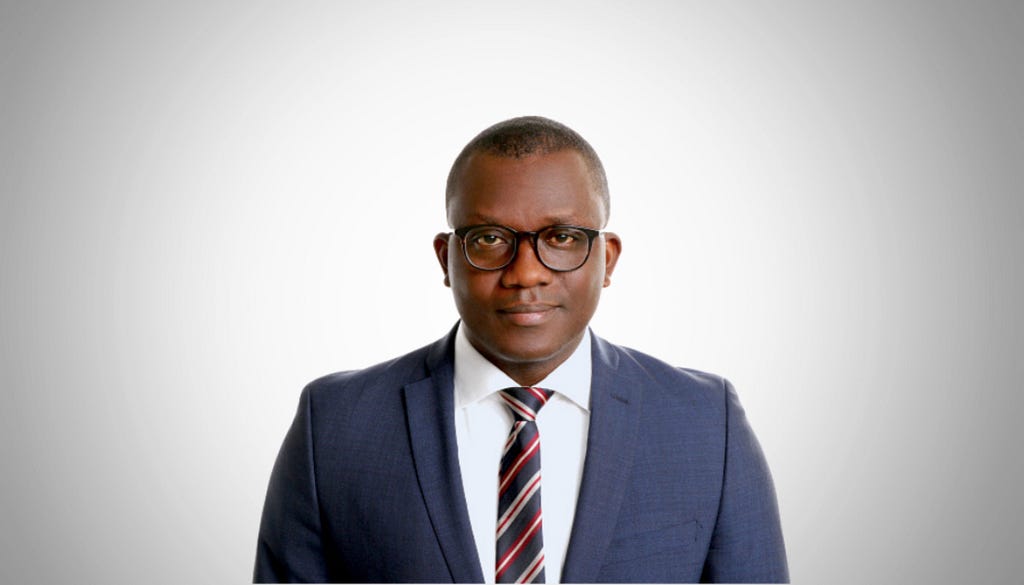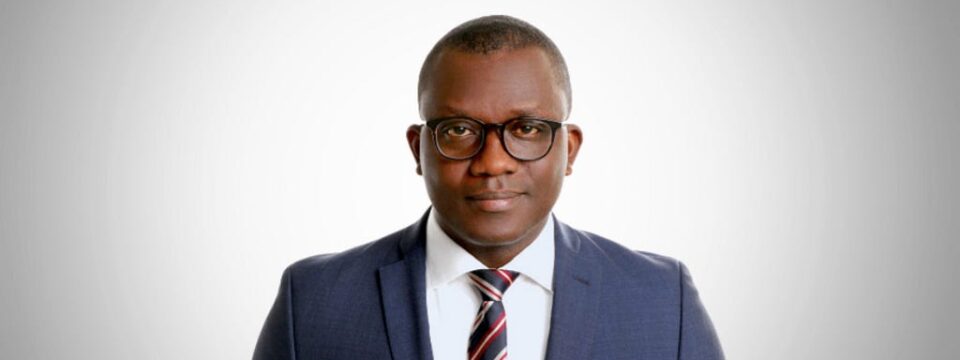
Expansion of telehealth services can be a very useful tool. On the hand, it can lower the cost of care and, on the other hand, the convenience it offers can help reduce the pains related to medication adherence
As part of my series about “individuals and organizations making an important social impact”, I had the pleasure of interviewing Femi Giwa.
Femi Giwa, MD, MPH is a healthcare investment expert with a mission to bridge the gap in healthcare accessibility for Americans, particularly for lower-income communities. Originally aspiring to be a cardio-thoracic surgeon, Femi’s focus shifted during medical school when he realized that many systemic healthcare issues were rooted in financial challenges.
Today, he specializes in raising capital for biotechnology companies developing treatments for rare diseases, helping secure hundreds of millions in funding. His work not only advances medical innovations but also addresses healthcare disparities and contributes to economic improvement by advocating for cost reductions. Femi’s diverse background and commitment to using finance as a tool for change are key drivers in his ongoing efforts to create a healthier, more equitable future for all Americans.
Thank you so much for joining us in this interview series! Can you tell us a story about what brought you to this specific career path?
As a medical student at the College of Medicine of the Lagos State University in Nigeria, I wanted to be a cardio-thoracic surgeon. That was my dream. However, I started to feel a draw towards the business side of healthcare. The nudge was my realization that most of the important problems we had in our healthcare system were business problems. Initially, I thought this was a Nigerian problem. Having lived, studied and worked in Canada and now the United States, I realize this is not a just a Nigerian issue. It is indeed ubiquitous. I am now an investment banker, and my aspiration is to use the instrumentality of finance to enable ambitious healthcare companies tackle some of the toughest problems confronting the American healthcare system
It has been said that our mistakes can be our greatest teachers. Can you share a story about the funniest mistake you made when you were first starting? Can you tell us what lesson you learned from that?
As a junior investment banker, I did not quite connect to a particular senior banker, and I noticed he was unwilling to support my growth and, in some cases, he worked against me.
I was advised by another senior banker to find ways to turn the relationship into a mentor-mentee relationship as against the traditional senior banker-junior banker relationship. I took this advice to heart and implemented a few subtle tips. After a few weeks, this person started to come around and would offer to help me through some of the areas where I needed to develop, and he ultimately became one of my advocates at the firm
Can you describe how you or your organization is making a significant social impact?
Times have changed. We have seen a few years characterized by inflation with 62% of Americans describing inflation as a very big problem, in a Pew Research Survey published May-2024. Inflation and rising cost of goods and services have weakened the economic power of the wallet of the average American, thus worsening the affordability crises in healthcare. In 2018, the American Journal of Surgery (AJS) published a paper that I co-authored with two colleagues — Dr. Ibrahim Abioye, a Harvard-trained population health scientist and Dr. Aitua Salami, a cardio-thoracic surgeon at UT Southwestern Medical Center — “Hospital Esophagectomy Volume and Post-operative Length of Stay: A Systemic Review and Meta-analysis”. We took an indirect review of the cost implication of volume of complex surgical procedures a given hospital does. We reviewed data from over 75,000 surgical procedures and, as a result, we observed two inflection points and were able to define a critical threshold (number of complex surgical procedures a given hospital does per year) at which patients, payers and other stakeholders can expect to start to see significant reductions in post-operative length of stay (LoS) and indeed the cost of complex surgical care. This is important because for every single day that a patient does not have to stay in the hospital post-surgery, that is potentially a day early that they are able to return to work to support the economy and provide for their families. This paper draws attention to this all-important topic and is much more relevant today as we navigate value-based care as an enduring national topic.
Many Americans with rare diseases face many health disparities and this is further compounded by their socio-economic realities, if they happen to be in the lower end of the economic pyramid. In my work as a Healthcare Investments and Analysis professional, I have been involved in raising hundreds of millions of dollars for leading biotechnology companies in America to enable them to bring cutting-edge rare disease therapies to the market. For example, I was involved in the $575 million capital raise for a genetic medicines biotechnology company that is working to tackle a host of rare diseases in America and across the globe. Such capital raises position these companies for tremendous impact when one considers the fact, only about 5% of rare diseases have an FDA-approved treatment option
Can you tell us a story about a particular individual who was impacted or helped by your cause?
Numerous patients benefit from my work supporting leading biotechnology firms to bring cutting-edge therapy to market, especially patients suffering cancers
Are there three things the community/society/politicians can do to help you address the root of the problem you are trying to solve?
To address health disparities:
- Expansion of telehealth services can be a very useful tool. On the hand, it can lower the cost of care and, on the other hand, the convenience it offers can help reduce the pains related to medication adherence
- Mass education of the public on where they can seek care, depending on severity of their medical condition
- Additional expansion of Medicaid
How do you define “Leadership”? Can you explain what you mean or give an example?
Leadership is the ability to influence others to do what they are required to do.
This often requires paying attention to the people we lead so we can understand who they are and what drives them. Understand who they are is our opportunity to meet them halfway and influence them to do what they need to do that they may be unwilling to do
What are your “5 things I wish someone told me when I first started” and why. Please share a story or example for each.
- Everything turns out in the end. Not all advantages that others have over you are real advantages. Some of them are only apparent; they are not real
- Not everything is important
- Second chances are not real opportunities; they are a second use of time, space, energy and money. Try to get it on the first attempt
- Take the cues that people drop for you
- Try not to do too many things at the same time or to change too many things at the same time
You are a person of enormous influence. If you could inspire a movement that would bring the most amount of good to the most amount of people, what would that be? You never know what your idea can trigger. 🙂
I would ensure everyone receives high quality education up to college level. Everyone!
Can you please give us your favorite “Life Lesson Quote”? Can you share how that was relevant to you in your life?
The person running home will not run past their house and the fellow walking home, though slowly, will not sleep on the road. Both would meet at home, eventually.
Is there a person in the world, or in the US with whom you would like to have a private breakfast or lunch with, and why? He or she might just see this, especially if we tag them. 🙂
Adebayo Ogunlesi
I would like to broadly understand how he has been able to manage his life through multiple levels of success
How can our readers further follow your work online?
I have a LinkedIn presence and following using my exact name. Thank
This was very meaningful, thank you so much. We wish you continued success in your great work!
Social Impact Heroes: Why & How How Dr. Femi Giwa Is Helping To Change Our World was originally published in Authority Magazine on Medium, where people are continuing the conversation by highlighting and responding to this story.
